Developing eLearning and Microlearning Instructional Solutions for the Corporate Sector

Instructor
-
 Chryso ChristodoulouCEO - Founder
Chryso ChristodoulouCEO - FounderMrs. Chryso Christodoulou is the founder of FUNecole® Research Institute and the co-founder of Digipro Education Limited. Her academic background is in Computer Science and Education. She is the designer and author of the FUNecole® for Cambridge ICT Starters Initial Steps endorsed by University of Cambridge International Examinations and recognized best practice educational approach by the European Commission. Mrs. Christodoulou is an external educational expert for the Institute of Prospective Technological Studies (IPTS) on various educational research projects. She is a program committee member for the Institute of Electrical and Electronics Engineers’ (IEEE) Computer society. Mrs. Christodoulou participates as keynote speaker and panelist at numerous conferences, seminars and workshops around the world. Mrs. Christodoulou´s work has been published in scholarly and policy publications, such as IEEE Xplore and the European Parliament Magazine. She is a recognized as an entrepreneurship expert by OECD and is one of 350 European Ambassadors of Entrepreneurship.
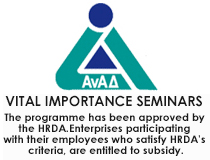
Date
- Νοέ 12 - 16 2021
- Expired!
Cost
- Fully Subsidized
Location
Prior to widespread technology, training had to be employed using expensive meetings, extensive and tiresome air flights as well as hotel and food expenses. The corporate training Industry has undergone great many changes as it started to go online since 2009. Online platforms that educate people through teaching new skills or providing niche-specific knowledge is known as eLearning business. Through the use of eLearning courses, employees gain vital skills to increase productivity, improve efficiency, and acquire greater profits. With the world rapidly changing, eLearning provides a way for companies to keep their employees apprised of changes.
The eLearning market increases by 200% in 3 years
Given the unprecedented challenges brought on by COVID-19, we’ve all been forced to adjust, slow down, and adapt. Even before the global pandemic hit, however, the introduction of eLearning was already on the rise to train professional teams. We’ve seen a growing number of leading organizations that have been turning to mobile-accessible Learning Management Systems (LMS) to modernize their dated and often ineffective training modules.
Between 2017 and 2020, the worldwide eLearning market increased by 200% at a value of $250 billion. And by year 2025, it’s expected to reach well over $300 billion.
eLearning on the Rise
Backed by research from industry experts around the globe, LearnWorlds commissioned a report in 2019 to examine the benefits surrounding eLearning. The report concluded that eLearning outweighs the benefits of traditional learning structures significantly, especially in the corporate space.
These findings were echoed by the Harvard Business Review, who reported that companies spent more than $90 billion on learning and development efforts in 2019 in the United States alone. They also predicted that this kind of shift was only expected to grow by organizations, where the eLearning market size was expected to grow beyond $200 billion by the year 2025 – and this was all before COVID-19 hit.
But why the Growth in eLearning?
eLearning trends were on the rise before the global pandemic. When executed correctly, eLearning can not only be a more convenient option as it enables dispersed teams to connect and complete vital learning content. But it can also produce better learning results in terms of completion rates, and more importantly knowledge retention. In fact, Brandon Hall and Rosenberg (2001) found that eLearning can increase knowledge retention by up to 60% simply because it’s more engaging than traditional learning.
1. Retention. This isn’t a new concept, as thought leaders and communication experts have long shared ideas around “The Medium is the Message” (Marshall McLuhan, 1964). This concept stresses the importance of the channel in which the message is delivered, rather than the message itself. Meaning, you may have important compliance-based learning content to deliver to your teams, but if it’s a 30-page Word document or PowerPoint presentation of dry text, the likelihood of interaction and retention is slim to none.
2. Time. Beyond its effectiveness, eLearning can also save an exponential amount of time. Reports have consistently found that eLearning typically requires 40 – 60% less time from any employee compared to traditional training. This type of training also seamlessly fits into employees’ busy schedules, providing a more flexible option for teams to complete their content when it suits them. Similarly, delivering training via eLearning or LMS saves hours of tedious preparation around face-to-face training or dated training modules since content can typically be updated and distributed in real-time – at scale.
3. Business revenue. Apart from its overall learning effectiveness, and being time-effective, it’s also been reported that 40% of companies say eLearning has helped them boost revenue levels, and companies that offer eLearning have generated more than 25% higher revenue per employee.
Microlearning Trends and Results
Like eLearning, microlearning has been steadily increasing in popularity as workplaces continue to modernize and produce better training styles to experience consistently better learning results.
Microlearning is the breaking down of information into small, bite-sized chunks so learners can easily absorb the information. Microlearning is typically delivered in small increments, meaning the learner tackles concepts in as little as five or ten minutes. The results mean that engagement rates soar from an average of 15% up to 90%. It also means that retention rates are improved and learners and because of the cognitive theory behind microlearning, the content learned has a better chance of being stored in long-term memory. That way, learners can have a deeper understanding of the content at hand as well as apply the knowledge in practical and effective ways.
Because of microlearning’s effectiveness, 8 out of 10 L&D professionals favor microlearning above other learning methods because their learners prefer it. It’s also been reported that development costs are reduced by 50% but the speed of development is increased by 300% with the introduction of eLearning microlearning.
Another reason why the introduction of microlearning has grown at higher rates is because of its learning results. This is backed by cognitive results and our brains’ capability to focus. For context, experts found that in the year 2000, the human attention span was 12 seconds. Jump to 2015 and it amounted to only 8.25 seconds. It’s clear that the average person’s attention span is consistently declining, so it only makes sense to adjust learning and training accordingly. In light of this, it’s not surprising that more and more organizations are embracing microlearning.
Mobile learning trends
Like eLearning and microlearning, you’ve probably guessed that mobile learning has also experienced a boost in popularity – not only in the year 2020 but also since the introduction of COVID-19.
The statistics:
- In 2015, the mobile learning market was worth $7.98 billion
- By the end of 2019, the mobile learning market was worth $27.32 billion
- By the year 2025, the mobile learning market is expected to reach $78.5 billion (Tech Jury, 2020).
Thought leaders like Josh Bersin believe that mobile microlearning should not only be embraced by organizations but must be introduced for businesses to succeed. Forbes reported that 80% of the workforce is composed of deskless workers, making mobile learning critical in becoming more proficient in their roles (2020). This number is only expected to grow, as more and more employees work remotely, either by necessity or by choice as a result of COVID-19.
This valuable seminar will be useful for instructional designers, promotion, marketing and internal training managers of SME Managers and/or large enterprises. These managers are in charge of the company or specific sections (or departments) within the company (e.g. marketing, promotion, sales, operational processes and training). The seminar also addresses the needs of HR Managers, and other key decision makers involved in the development or the implementation of new business initiatives like new lines of products or services, the expansion of the company in new markets etc. Business managers, owners and training design professions with the strategy as well as the benefits of utilizing eLearning and Microlearning technology in training their employees or servicing the clients in Cyprus and abroad. This valuable seminar will prepare them to find the best corporate eLearning authoring tools and strategies to develop their own business solutions.
Typical examples are managers who engage in formal or informal training activities, managers who would like to participate in virtual meetings for the purpose of informing about and/or promoting online their products and services. These include examples like IT companies developing IT products (hardware or software), Educational service providers developing open platforms, products and services that enhance the quality of customer experience and generate value, Hospitality service providers which have been hit badly by the Covid-19, Medical/Chemical companies that design, develop and promote new health devices, equipment or new materials. Engineering companies developing radical innovations (building methods or products), land developers, financial and legal service providers who wish to contact their clients remotely.
This expert educator professional development workshop aims provide to participants with the latest state of the art tools, platforms and educational pedagogies that will fully support them to acquire the following types of knowledge, skills and attitude-related objectives:
Knowledge-related objectives
- Identify eLearning as an i effective, time-saving, and results in higher business revenue.
- Regognize that COVID-19 has boosted the introduction of effective eLearning, particularly in the workplace.
- Plan how to and acquire knowledge and skills to design eLearning interactions that increase eLearning effectiveness and decrease costs.
- Evaluate the linear or non-linear navigation and layout for the eLearning lesson/course.
- Recognize that like eLearning, microlearning has been steadily increasing in popularity as workplaces continue to modernize and produce better training styles to experience consistently better learning results.
Skills-related objectives (Be able to)
- Use top of the art corporate eLearning and microlearning solutions.
- Use Content Authoring Tools and Online Assessment tools.
- Design Web2.0 and Mobile Learning solutions.
- Organize the participant’s eLearning portfolio.
- Organize and design documents, storyboards and prototypes to support eLearning experiences.
- Demonstrate the online participant progress, engagement in solving individual and collaborative problems.
- Set up the online organization of participant activities and assessments according to international curriculum standards.
- Practice current theories, principles, methodologies, and techniques of online learning.
- Establish interactive eLearning experiences that meet your learners’ needs.
Attitude-related objectives
- Advocate for knowledge, skills, and creativity related to eLearning instructional design.
- Choose interactive games, simulations, job aids, and graphics.
- Model and collaborate effectively with Subject Matter Experts (SMEs) in reference to eLearning applications per subjects.
- Approve effective eLearning projects that efficiently use both traditional and agile learning methodologies and recourses.
- Assess appropriate performance improvement interventions.
- evaluate eLearning courses, in structural methods and eLearning practices.
Recent Program Participants


















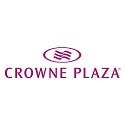






































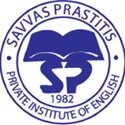




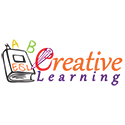












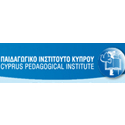

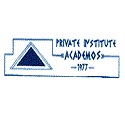


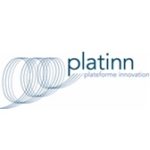
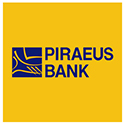

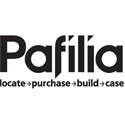


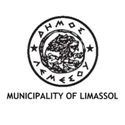

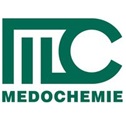

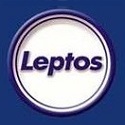



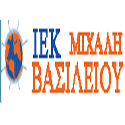





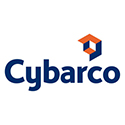
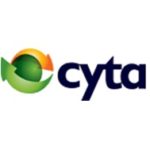




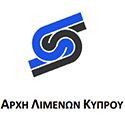

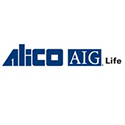


The event is finished.
Hourly Schedule
Day 1
- 7:30 - 9:30
- Support the Technical Infrastructure Necessary for Online Learning.
- 9:30 - 9:45
- Coffee Break
- 9:45 - 12:15
- Create a Blueprint of your eLearning Strategy
- 12:15 - 13:00
- Lunch Break
- 13:00 - 14:00
- Microlearning
- 14:00 - 14:15
- Coffee Break
- 14:15 - 15:45
- Microlearning with EdApp
Day 2
- 7:30 - 9:30
- Differentiate between the four levels of interactivity and select the most appropriate level for the online lessons/course
- 9:30 - 9:45
- Coffee Break
- 9:45 - 12:15
- Integrate Reliable Assessment Recourses.
- 12:15 - 13:00
- Lunch Break
- 13:00 - 15:00
- Incorporate social Networking tools in the eLearning Course
- 15:00 - 15:15
- Coffee Break
- 15:15 - 15:45
- Present group projects that contain learning experiences beyond expectations driven by authentic passion and need.
'Oροι και Προϋποθέσεις
The above seminar is fully subsidized by HRDA on the condition that the following criteria is stringently adhered to:
1. Cameras and microphones must be open for the duration of the seminar.
2. Participation for the whole seminar must exceed 75%.
3. 1 device per person must be used.
4. You must ensure you check in punctually at the beginning of the seminar and check out at the end of each day.
5. You are obligated to participate in the follow up onsite 4 Hour visit and you must ensure you check in and check out promptly.
In the event the criteria is not fulfilled satisfactorily and you are rejected by HRDA, please note that you as an individual or your company will be liable to pay the participation fee of €1800.
Finally, please see our cancellation policy:
– Cancellations can be accepted up to 5 working days prior to the seminar without penalties. For any cancellations received after the deadline (or no-shows), the individual or company will be invoiced the full amount per participant.
– Substitutions can be accepted up to 2 working days prior to the seminar without penalties.

